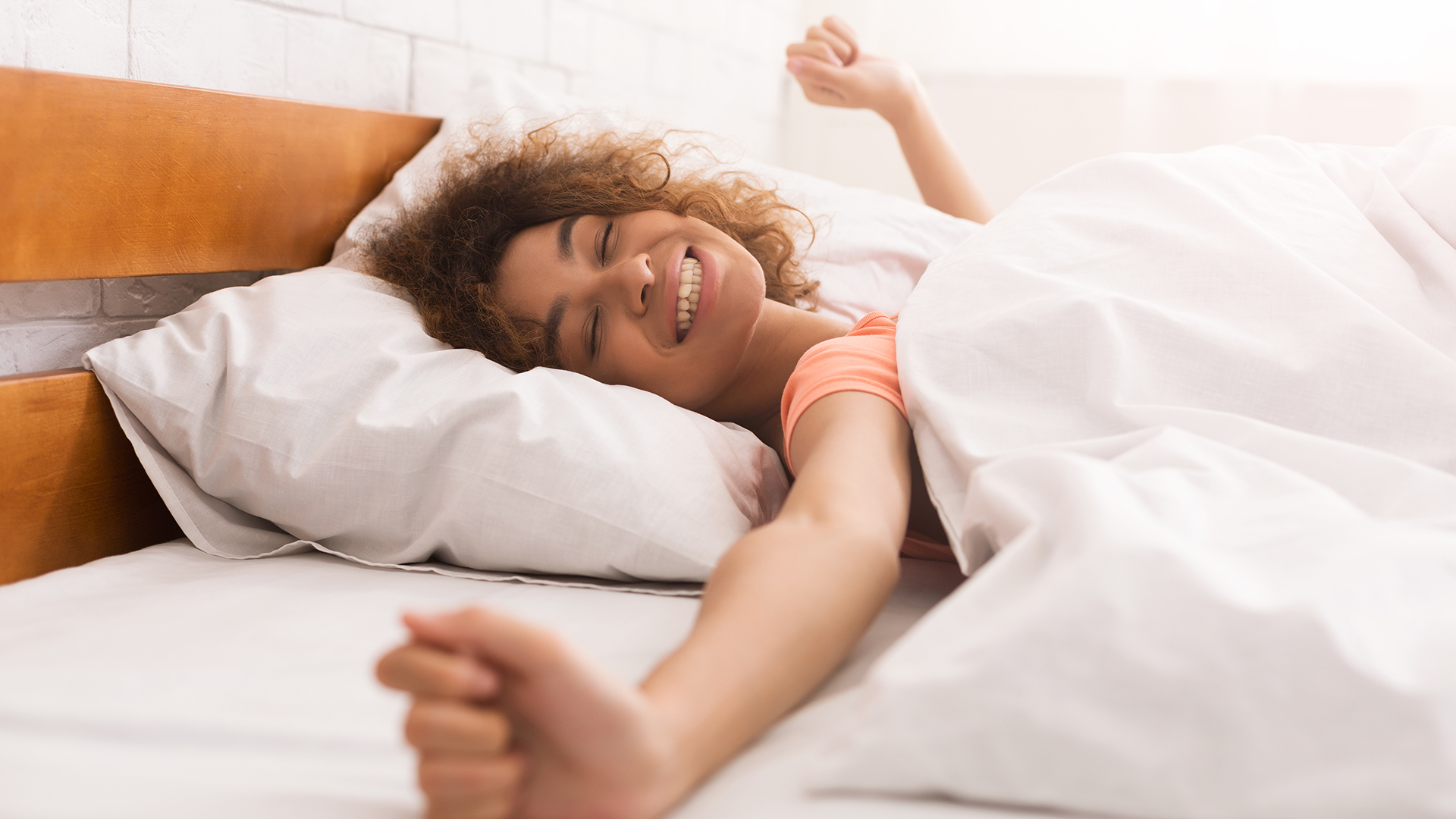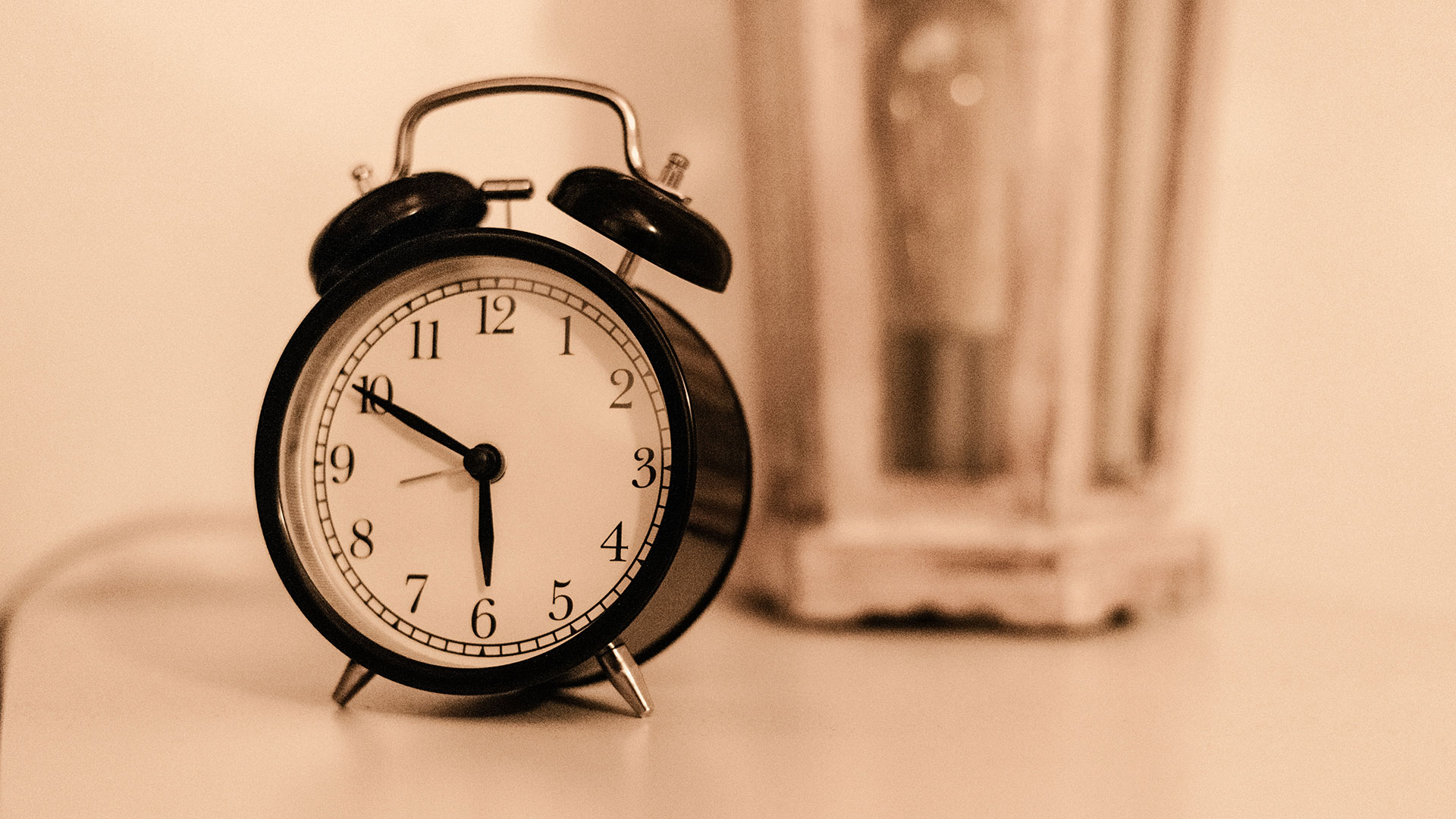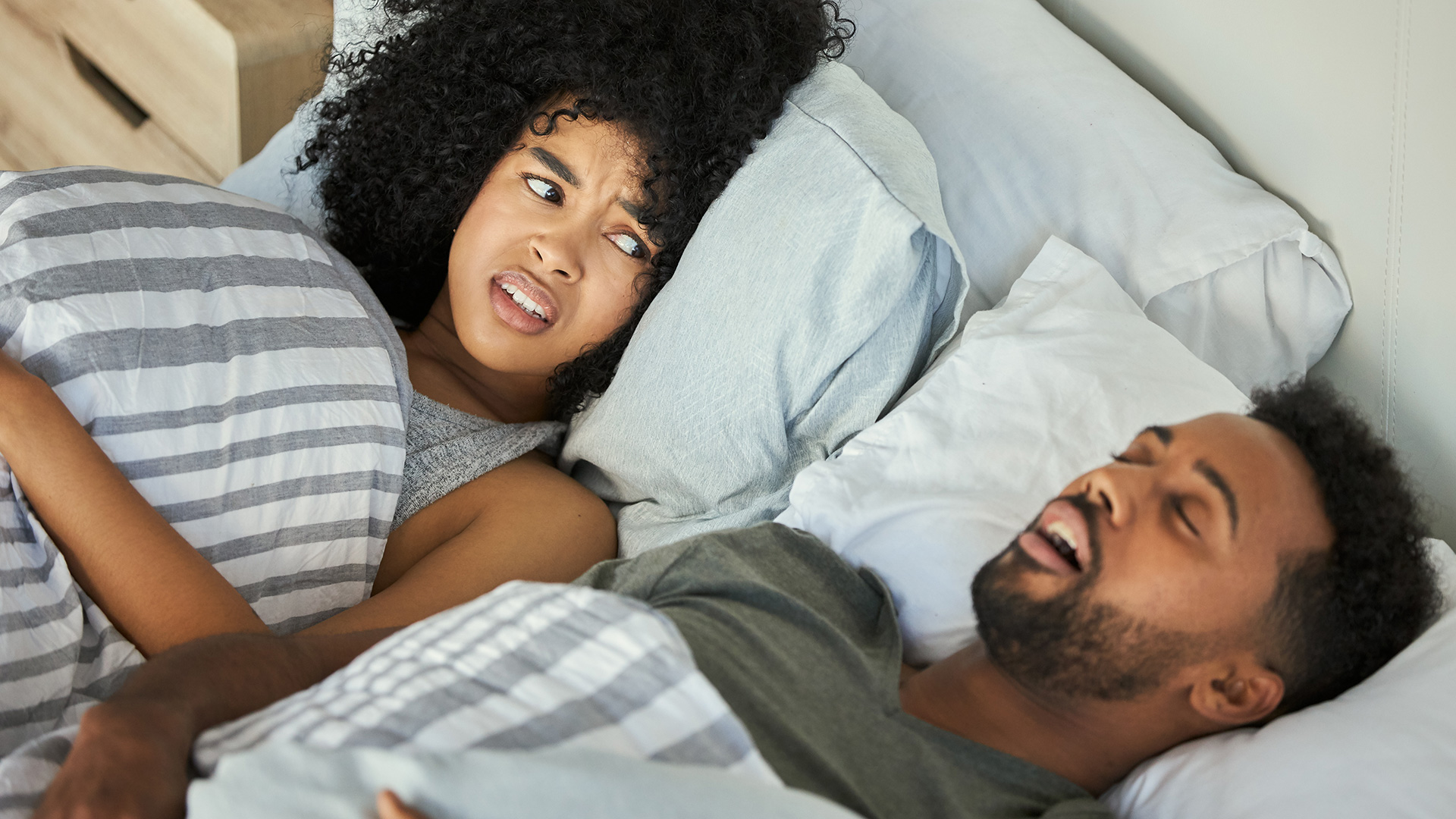It's World Sleep Day! Here are 24 ways to improve your sleep
Revamp your bedtime habits once and for all


Today is World Sleep Day, so if you're reading this bleary-eyed and ready to pop back to bed, perhaps it's time to use this as the impetus you need to revamp your bedtime routine and improve the situation. "Your sleep is vitally important to your physical, mental and emotional health," explains independent sleep consultant Dr Neil Stanley. "You need to make time in your life to get the sleep you need. Prioritise sleep; it should not be the thing you do after everything else."
If you're thinking it might be time to upgrade your bed, our best mattress guide will set you off in the right direction (chances are we'll see a range of strong cheap mattress deals in honour of the event). While your mattress is a vital ingredient in getting a great night's sleep, it's also important to establish a healthy bedtime routine.
Neil has teamed up with sleep brand Piglet in Bed to share his top tips – based on 40 years of sleep research – to help you sleep better. There are 24 different techniques to try, so chances are you'll find something in there that works for you.
1. Fix your daily wakeup time
Having a set time that you wake up every day – not just on weekdays – will help ensure you wake up feeling refreshed. "Your body and brain start preparing to wake up approx 90 minutes before you actually do, so if you have a fixed wake up time, the body and brain know when they are going to wake and can thus prepare accordingly," explains Neil.
2. Get some sunlight during the day
"Sunlight is the most powerful regulator of our biological clock," says Neil. "This is why we have evolved to sleep during the night and be awake during the day." Lean into this by making sure your bedroom is as dark as possible when you're trying to sleep, and focus on getting out in sunlight during the day.

3. Dedicate your bedroom to sleep
"Your bedroom should be devoted to sleep," says Neil. "If you are not asleep, you should not be in your bedroom, and you should only sleep in your bedroom. It is not your office, gym, games, room or cinema."
4. Figure out if you are a lark or an owl
Feeling refreshed in the day is not just about how many hours of sleep you have – it's also when you have that sleep. Whether you're more of a 'lark' (morning person) or an 'owl' (evening person) is largely down to genetics, says Neil, but it can have a big impact on how awake you feel during the day. "Suppose you are an evening person and you wake up before your natural propensity to wake," he explains. "In that case, you may experience 'sleep inertia', that feeling of grogginess, for between 15 minutes and 2 hours after waking."
Get all the latest news, reviews, deals and buying guides on gorgeous tech, home and active products from the T3 experts
5. Wait until you're sleepy to go to bed
If you're not sleepy yet, find something else to do until you are – for example reading a book or listening to some calming music. "Find something relaxing but not stimulating to take your mind off of worries about sleep," suggests Neil.
6. … and if you can't sleep, get out of bed
"If you are tossing and turning for more than 30 minutes at the start of the night or 20 minutes during the night, it may be helpful to get out of bed and do something else, only going back to bed when you feel sleepy again," says Neil. Similarly, if you're up before your alarm, perhaps start your day then rather than stressing about getting back to sleep again.
7. Know that not everyone needs 8 hours
We have been led to believe we should all be striving for eight hours of sleep a night, but Neil says that in reality, anywhere between four and 11 hours could be enough for you. "Your sleep need is genetically determined, so; if you are a nine hour a night person, you need to endeavour to get nine hours," he says. "Also, if you are naturally a four hour a night person, you will essentially be wasting your time if you are trying to get what you have been led to believe is the ideal eight hours a night."
He stresses, though. that "there is a big difference between getting four hours' sleep a night and actually needing only four hours". How do you know how much you need? Easy – if you feel awake and able to function at a high level the day, you've had enough sleep for you.

8. Follow this process to quiet your mind
"The number one prerequisite for getting to sleep is a quiet mind," says Neil. "You cannot fall asleep if your mind is whirring with the care of the day." To help ensure you're in the right mindset for sleep, he suggests starting a wind-down routine two hours before you actually want to go to sleep. Use this as the cutoff for any potentially stress-inducing tasks (checking your work email, launching into a political debate with your partner, that kind of thing). Then 45 minutes before bedtime, take things down another notch by putting any devices away and doing something you find relaxing. "For some people, this can be reading a book or listening to music, for others it can be a warm bath or a mug of a hot milky drink," he suggests.
9. Put down your devices before bed
This one's well known: the blue light you get from your smartphones, laptop and so on, isn't great for sleep. "Blue light has been shown to suppress melatonin production," explains Neil. "Melatonin is a key signal to the body that it is time to fall asleep, so it is important to avoid exposure to blue light before lights out." He recommends avoiding devices for 45 minutes before bed.
10. Buy an alarm clock rather than using your phone
Related to that last point – most people use the alarm on their phone to wake them up in the mornings. That means your phone needs to be right next to your bed, which means there's a temptation to play on it directly before bed, or even check it if you wake up in the night. Instead, Neil recommends picking up a dedicated alarm clock, and leaving your phone in the next room, or at the very least away from your bedside. For a gentler wakeup, you could even try one of the best sunrise lamps, which rouse you slowly from your slumber with a gradually brightening light.
11. Make sure your bedroom is dark
"Darkness is essential for sleep; even small amounts of light can be disruptive to sleep and the lighter your bedroom, the worse the problem," says Neil. To create the perfect environment for sleep, sufficiently dark curtains or blackout blinds are a good idea (or pop on an eye mask if that's not possible – we like this one from Ostrichpillow). Don't forget to cover up any internal light sources too, such as a phone charging LED, for instance.
12. Don't count sheep
"Recent research has shown that even something as simple as counting sheep can actually keep you from sleeping," says Neil. "Counting engages the brain. Imagining a static, tranquil scene is more effective."
13. Sharing? Consider 'sleep divorce'
If you find your partner's sleep habits – snoring or wriggling, for example – are regularly preventing you from having an undisturbed night's sleep, consider sleep divorce. This is essentially where you opt to sleep separately, and it's becoming increasingly popular. If you automatically baulk at the idea, consider this: "If it works for you both, not sleeping together is a mature, pragmatic solution to a problem," says Neil. "[It] has no bearing on the strength, or otherwise, of your relationship. Lack of 'intimacy' would be much more suggestive of a problem."

14. … or just buy a bigger bed
If there are two of you sleeping in a standard UK Double bed, you have less space allocated to you per person than a Single. Opt for a King or even, if you have space, a Super King, and you'll be much less likely to end up disturbed by a fidgety partner or fighting over space. Head to our best mattress guide for our top recommendations, or check out this guide to the different mattress sizes in the EU, UK and US if you're not quite sure.
15. Avoid napping in the day
"If you nap throughout the day, it is probably not surprising that you will not be able to sleep at night," says Neil. If you really, really need a nap, he recommends limiting it to 20 minutes in the mid-afternoon – this is enough to give you a mental boost.
16. Time your evening meal right
This one is a balancing act. Chow down on a heavy meal right before bedtime and your body will be working to burn the calories consumed, raising your body temperature when actually it need to drop during the night if you want to get a good sleep. Eat too early, and you'll end up going to bed feeling hungry, which can be just as disruptive, though.
17. Lay off the booze
"Alcohol works on the same receptors as sleeping tablets, so it will help put you to sleep," says Neil. However, the issues will kick in later in the night – you might get a headache from dehydration; you might end up overheating as your body burns off the calories. "However, a small sherry before bed has never done anyone any harm," he caveats.
18. … in fact, stop drinking (anything) right before bed
To avoid having your sleep disturbed by bathroom breaks, Neil recommends restricting the amount of fluids you're taking in during the hour before you go to sleep, and going to the loo right before you switch the lights off (here's some more detail on when to stop drinking before bed).
How important this is can depend on your age. "As we get older, the more prevalent are these night-time awakenings," he explains. If you're regularly having to get up to wee more than once in the night, you should speak to your doctor.

19. Consider earplugs or pink noise
If you're finding your sleep disrupted by nighttime noises, pop in some earplugs. And if that doesn't work, try a white or pink noise machine. "Some people also find that the drone of an electric fan or relaxing music can be helpful in masking other more disruptive sounds," says Neil. "If you are going to use a noise app or a sound machine, 'pink noise' is better than white noise."
20. Keep a pen and paper next to your bed
"If you are worried about something, then write your worries down. They will still be there in the morning, so you don't have to worry about them during the night," suggests Neil. "If your mind is racing with everything you have to do tomorrow, make a list of things to be tackled the next day."
21. Get active during the day
"Being physically and/or mentally active during the day is one of the best ways of ensuring good sleep at night," says Neil. Don't time that activity to just before bed though, or you'll likely have trouble switching off. Leave time to wind down and prepare your mind and body for sleep.
22. Don't stress about sleep
"Don't over-complicate getting to sleep; remember, you cannot find sleep; you have to let sleep find you," says Neil.
23. Adjust your caffeine consumption
Different people react to, and process caffeine in different ways. Some some people will be perfectly fine to have a cup of coffee in the evening and it won't affect their sleep, while others might still be feeling the effects of their morning cuppa at the time. "If you have problems falling asleep or your sleep isn't restful, it may be useful to avoid caffeinated drinks and see if your sleep improves," suggests Neil.
24. Establish a bedtime routine
Having some kind of wind-down routine is a good idea, says Neil, but what it consists of is up to you. "Your bedtime routine should be easy to do and a pleasure, not a chore; whatever works for you is correct," he explains. "It does not matter if you have a few different routines that you use; the most important thing is that they are something that you want to do each night."

Ruth was T3's Outdoors and Wellness Editor from 2020 to 2022, covering hiking, camping and adventure sports kit, as well as mattresses, sleep accessories, yoga and general wellness. She's now a Homes Editor at sister site TechRadar, where she deals in all things air (vacuum cleaners, robovacs, fans and air purifiers), and hair (hair dryers, straighteners and stylers).